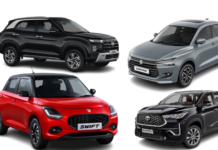Driving at night can be a challenging experience for many people, with reduced visibility and the glare from oncoming headlights making it difficult to navigate the road safely. In fact, night driving can be more dangerous due to various factors such as compromised depth perception, difficulty adjusting to light changes, and visual discomfort caused by bright lights and reflections. For individuals who experience these issues regularly, it can feel like a constant struggle to stay safe and confident on the road. This is where the right pair of glasses comes into play. Night driving glasses can play a crucial role in enhancing visibility, reducing glare, and minimizing eye strain, which can make nighttime driving more comfortable and safer.
What Are Night Driving Glasses?

Imagine a pair of cool yellow or amber-tinted glasses you can grab without a doctor’s note yep, that’s your night driving crew. These over-the-counter champs are all about filtering blue light, the sneaky culprit behind headlight glare. I snagged a pair once, holding them up by my wheel, and the road felt less like a disco. But they’re not fixing blurry vision. If astigmatism’s your nemesis like it is for tons of us, these won’t cut it prescription’s where it’s at.
What Are Anti-Reflective Coated Glasses?

The anti-reflective (AR) coated glasses the VIPs of night vision. This slick coating teams up with your prescription lenses to karate-chop glare and let more light through. I used to see halos around every light straight-up sci-fi vibes until AR saved me. It’s perfect if astigmatism’s in the mix or you just hate squinting at dusk. Clearer sight less strain.
Night Driving Glasses vs. Anti-Reflective Coating
So, yellow-tint vs. AR what’s the deal? Night driving glasses are those non-prescription, amber-hued buddies that tackle blue light. AR coating, usually on prescription lenses, goes harder slashing glare and boosting light flow. Here’s the showdown:
- Glare Reduction: Yellow softens blue light AR kills reflections AR’s the champ.
- Vision Enhancement: Yellow might dim too AR lights up the night point AR.
- Prescription: Yellow’s OTC ARS Rx-ready AR again.
- Eye Conditions: Yellow’s got zilch for astigmatism; AR’s your wingman AR sweeps.
- Effectiveness: Yellow’s iffy ARS a sure bet game over.
Yellow’s cute, but AR’s the boss for serious night drivers.
How to Tell if You Need Night Driving Glasses
Not sure if your eyes are waving a white flag? Check these clues:
- Glare Sensitivity: Headlights turning into mini suns? Yep, that’s a hint.
- Light Adjustment Lag: Eyes dragging from bright to dark? Been there.
- Close Calls: Nearly kissed a curb ‘cause you couldn’t see? Yikes I’ve dodged that bullet.
- Doc’s Tip: Eye pro says get help? Listen up.
If this is your life, don’t sleep on an eye exam Pearle Vision’s got your back for road-ready eyes.
Factors that Can Affect Your Night Vision

Night vision’s not just about glasses sometimes it’s sneaky culprits:
- Astigmatism: Wonky cornea blurs everything, worse in the dark.
- Cataracts: Cloudy lenses scatter light surgery’s a game-changer.
- Vitamin A Dip: Low on this? Your retina’s slacking load up on sweet potatoes!
- Screen Overdose: Too much scrolling fries your eyes for night duty.
- Post-LASIK Woes: Halos or glare after surgery? Annoying but real.
- Retinitis Pigmentosa: Rare glitch that dims night sight check it out.
- Diabetic Retinopathy: Sugar spikes haze your retina manage it.
I blamed late nights once turns out, a nutrient tweak helped. Dig into your why.
Additional Tips to Enhance Nighttime Driving Visibility
Glasses are ace, but these hacks crank it up:
- Spotless Specs: Smudges = glare central. Wipe ‘em down.
- Windshield TLC: Dirty glass turns lights into a mess clean inside and out.
- Dim the Dash: Bright interior glow? Nope, dial it back.
- Mirror Magic: Tilt rearviews to dodge tailgater beams pro move.
- Break Time: Long haul? Rest those eyes I’m a stretch-stop fan.
- Headlight Tune-Up: Beams off? Fix ‘em your night sight depends on it.
Stack these with your glasses, and you’re golden.
9 Tips for Choosing the Best Glasses for Night Driving
Choosing the right glasses for driving at night is essential for ensuring both your safety and comfort behind the wheel. The challenges of night driving, such as reduced visibility, glare, and eye fatigue, can make the experience stressful. However, with the right pair of glasses, you can significantly improve your driving experience. Here are nine key tips to help you choose the best glasses for driving at night:
1. Prioritize Lens Color
- Yellow and orange lenses are the most commonly recommended for night driving. These colors help to enhance contrast and improve visibility in low-light conditions.
- Yellow lenses are particularly useful for cloudy, foggy, or dark environments, as they increase contrast and depth perception.
- These lenses reduce glare from headlights and streetlights, making it easier to spot obstacles on the road.
- However, some individuals may find that these lenses reduce overall brightness, so it’s important to test them before committing.
2. Find a Comfortable Fit
- Glasses should fit snugly and securely on your face to avoid distractions while driving.
- A comfortable fit helps ensure the glasses stay in place, so you can focus on the road without constantly adjusting them.
- Opt for frames that don’t press too hard on the sides of your head or nose, as this can cause discomfort during long drives.
- The right fit ensures long-lasting comfort and helps you stay focused on the task at hand.
3. Consider the Quality of the Materials
- Opt for branded glasses made from high-quality materials like polycarbonate or TR90. These materials are lightweight yet durable.
- Impact-resistant lenses are ideal for night driving, ensuring your glasses remain intact even in case of accidental bumps.
- High-quality materials not only provide superior durability but also offer better protection from potential eye injuries caused by sudden impact.
- Investing in quality ensures longer-lasting performance, preventing you from needing frequent replacements.
4. Read Other Users’ Opinions
- Before purchasing any glasses, take the time to read customer reviews to learn about other users’ experiences with the product.
- User reviews can help you identify the pros and cons of a specific model, such as how effective it is at reducing glare or improving contrast.
- Real-life feedback can provide valuable insights into how the glasses perform under various driving conditions, helping you make a more informed decision.
- Peer opinions can guide you toward a pair of glasses that truly works for your night driving needs.
5. Try the Glasses Before Buying Them
- If possible, always try on glasses before making a purchase to check if they offer the right level of comfort and fit for your face shape.
- Testing glasses allows you to ensure that they don’t obstruct your peripheral vision or cause discomfort when worn for extended periods.
- Many eyewear stores offer trial periods or fitting services, allowing you to test the glasses in real-life conditions before committing.
- Trying on glasses in-store can also help you evaluate how well they improve your vision in low-light environments.
6. Opt for an Anti-Reflective Treatment
- Anti-reflective (AR) coating helps reduce the glare and reflections from headlights, streetlights, and other sources of bright light, making it easier to see at night.
- AR coating allows more light to pass through the lenses, improving contrast and clarity, especially in low-light settings.
- Lenses with this treatment also help minimize distractions, allowing you to focus on the road ahead without the interference of halos or reflections.
- Investing in AR-coated glasses ensures better vision and comfort, particularly during nighttime or dusk driving.
7. Don’t Be Fooled by Prices That Are Too Low
- While affordable glasses may seem appealing, cheap lenses often compromise on quality, which can result in distorted vision and reduced clarity.
- Low-quality lenses might also lack essential features like glare reduction or impact resistance, which are critical for safe driving at night.
- A pair of glasses that’s too inexpensive may not provide adequate protection for your eyes, leading to discomfort or safety risks while driving.
- Opting for higher-quality glasses ensures that you’re getting the best value in terms of durability, performance, and comfort.
8. Consult an Optician
- If you’re unsure which glasses are best for your night driving needs, it’s always a good idea to consult an optician.
- An optician can help you identify any underlying vision issues, such as astigmatism or nearsightedness, that may be affecting your nighttime driving.
- Based on your specific vision needs, they can recommend the most appropriate lenses and coatings to enhance your nighttime driving experience.
- Personalized advice from a professional ensures that you’re investing in the right eyewear for both comfort and safety.
9. Combine Glasses with Other Healthy Habits
- While night driving glasses can help, they should be used as part of a broader strategy to improve your safety behind the wheel.
- Resting and sleeping well before driving at night helps ensure that your vision and reaction times are at their best.
- Maintaining a balanced diet with nutrients beneficial for eye health, such as vitamin A, can support overall vision, especially at night.
- Practicing defensive driving, such as keeping a safe distance from other vehicles and staying alert, can complement your use of glasses and make driving at night safer.
Conclusion
Choose the best glasses for night driving is an important step in improving your overall driving experience and safety on the road, especially during the nighttime when visibility is compromised. The road conditions at night can be more hazardous due to several factors, including glare from headlights, reduced contrast, and a general decrease in light sensitivity. These challenges can be overwhelming, but the right pair of glasses can make a significant difference in helping you see clearly and navigate with confidence. While traditional yellow-tinted night driving glasses have been popular for some time, it’s essential to recognize their limitations. Yellow lenses may improve contrast in certain conditions, but they can also block out too much light, which ultimately hinders overall visibility.
FAQ
01. What glasses help with night driving?
A: Anti-reflective coated glasses they nix glare and boost low-light sharpness like champs.
02. How do night driving glasses work?
A: Yellow filters blue light; AR cuts reflections both chill your eyes and up your night game.
03. How to get glasses for night driving?
A: Swing by Pearle Vision they’ll test your eyes and fit you with AR-coated perfection.
04. Are yellow lenses good for night driving?
A: They’re hyped, but meh might dim too much. AR’s the real deal for clarity.
05. Why do I struggle with night driving?
A: Astigmatism, cataracts, or screen time could be culprits age too. Eye exam’s your detective.
06. How often should I update my prescription for night driving glasses?
A: Every 1-2 years, or sooner if night sight’s fading eyes shift, stay sharp.
07. Can anti-reflective coating be added to any glasses?
A: Mostly, yeah! Most Rx lenses can get the AR upgrade ask your optician.








